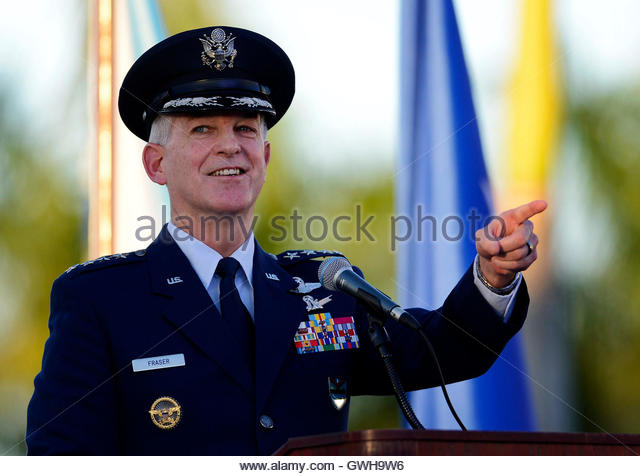Retired Air Force Gen. Douglas Fraser says he doesn’t see a good reason to use the military to oust Maduro.

President Donald Trump once openly considered a “military option” to oust Venezuelan President Nicolás Maduro — and now that the US has officially called on Maduro to step down amid massive protests against his rule, Trump says that option is back on the table.
But according to a former top US military official, it probably shouldn’t be. The Pentagon’s former top official in charge of overseeing South American operations says there is no “good reason” for the US military to intervene in Venezuela right now.
The country is currently in the grip of a potentially explosive political standoff between two men who both claim to be the legitimate president of Venezuela: Maduro, who was reelected president in May 2018; and opposition leader Juan Guaidó.
Guaidó claims the 2018 election was rigged and that he, as the head of the National Assembly (the country’s legislative body), is now the rightful president according to the country’s constitution.
On Wednesday, Trump officially recognized Guaidó as Venezuela’s interim president and called Maduro’s claim to the presidency “illegitimate.” But Maduro has responded with defiance and has so far shown no sign of stepping down anytime soon.
That led reporters soon afterward to ask Trump if he might send US troops into Venezuela to remove Maduro from power. “We’re not considering anything,” Trump responded, “but all options are on the table.”
But retired Air Force Gen. Douglas Fraser, who from June 2009 to November 2012 led US Southern Command — the part of the Defense Department responsible for overseeing Central and South America and the Caribbean — told me that US military intervention is the wrong course of action right now.
“I don’t see a good reason for the military to be employed in this situation,” he said.
Here’s why he thinks that, and why the Trump administration should prioritize other options instead.
Why a military option isn’t a good idea right now
Maduro still has control and the backing of major institutions in his country — including the military. On Thursday, Venezuela’s armed forces said they support their Maduro and will stop any coup attempts against him.
That means that any US military action aimed at toppling Maduro would likely be met with stiff resistance from the 515,000-strong Venezuelan military.
What’s more, even if the US military did succeed in toppling Maduro, the country would almost certainly be in a much worse state after even the most limited war — and Venezuela is already suffering from a dire humanitarian catastrophe caused by an economic collapse over the past several years.
That could pressure the US military to stay in the country long enough to stabilize it — potentially leading to yet another open-ended US military commitment abroad. (See: the Iraq War and the war in Afghanistan.)
Instead, Fraser said, the US would be better off working with regional allies and partners to alleviate some of the suffering in and around Venezuela. Most of the country lives in poverty and lacks access to even the most basic things needed for survival. That has led millions to flee to Colombia and other nearby countries to escape the misery.
Fraser did acknowledge that the US military should still look into what it would take to invade Venezuela just in case Trump does call for such a plan. “It might be worthwhile to just understand what the implications and requirements would be,” he told me. “That’s only prudent planning in case the president decides that’s an option he wants.”
But he doesn’t think Trump should choose that option anytime soon. “I don’t see the benefit of a direct military engagement,” he told me.
So for now, perhaps Trump should take that option off the table.
This article was originally published by “VOX”
The 21st Century
